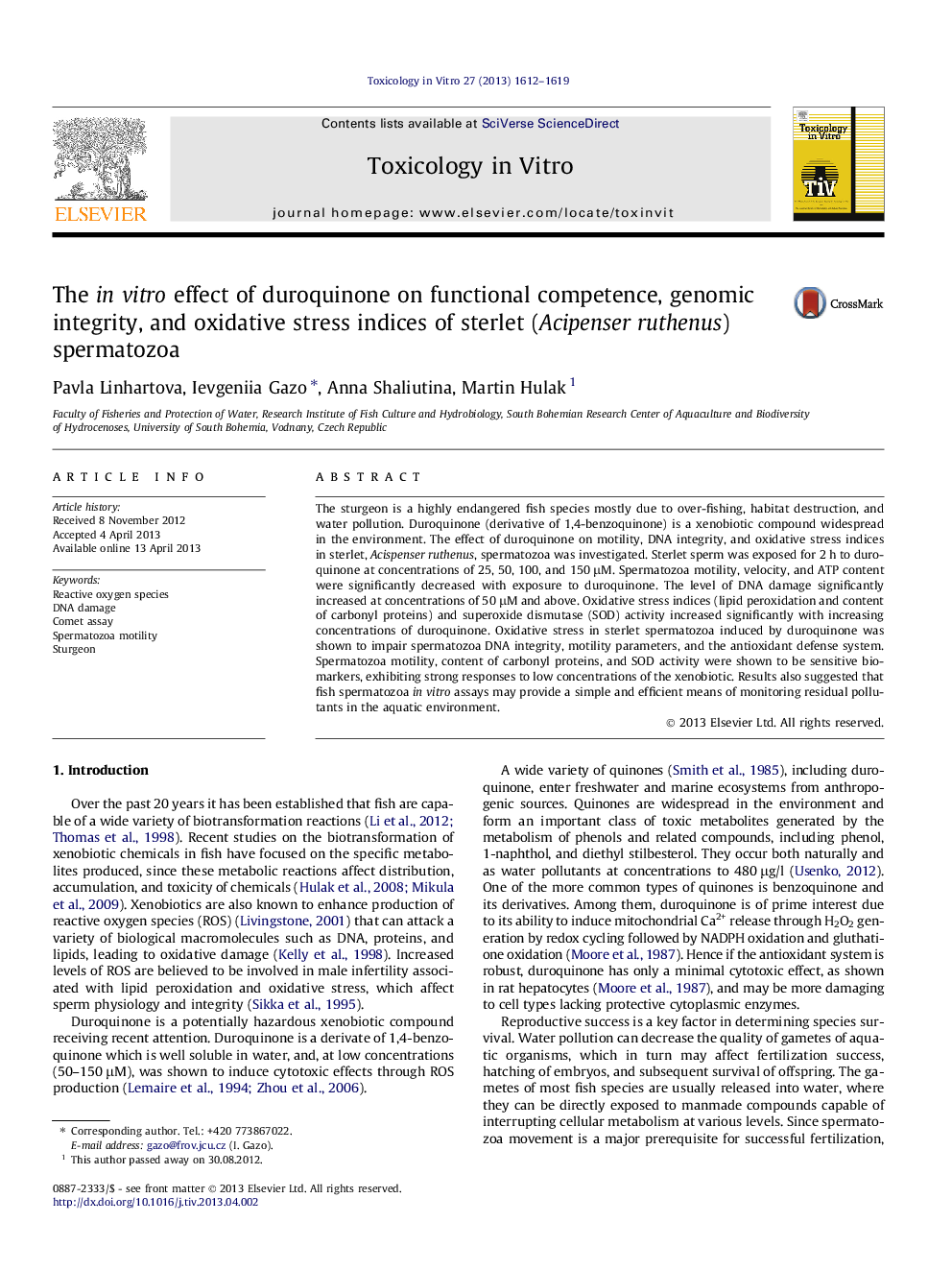| Article ID | Journal | Published Year | Pages | File Type |
|---|---|---|---|---|
| 5861724 | Toxicology in Vitro | 2013 | 8 Pages |
â¢The effect of duroquinone on sperm of sterlet (Acipenser ruthenus) was investigated.â¢Duroquinone can impair sperm DNA integrity, quality and antioxidant defence system.â¢Fish spermatozoa could be used for monitoring pollutants in aquatic environment.
The sturgeon is a highly endangered fish species mostly due to over-fishing, habitat destruction, and water pollution. Duroquinone (derivative of 1,4-benzoquinone) is a xenobiotic compound widespread in the environment. The effect of duroquinone on motility, DNA integrity, and oxidative stress indices in sterlet, Acispenser ruthenus, spermatozoa was investigated. Sterlet sperm was exposed for 2 h to duroquinone at concentrations of 25, 50, 100, and 150 μM. Spermatozoa motility, velocity, and ATP content were significantly decreased with exposure to duroquinone. The level of DNA damage significantly increased at concentrations of 50 μM and above. Oxidative stress indices (lipid peroxidation and content of carbonyl proteins) and superoxide dismutase (SOD) activity increased significantly with increasing concentrations of duroquinone. Oxidative stress in sterlet spermatozoa induced by duroquinone was shown to impair spermatozoa DNA integrity, motility parameters, and the antioxidant defense system. Spermatozoa motility, content of carbonyl proteins, and SOD activity were shown to be sensitive biomarkers, exhibiting strong responses to low concentrations of the xenobiotic. Results also suggested that fish spermatozoa in vitro assays may provide a simple and efficient means of monitoring residual pollutants in the aquatic environment.
